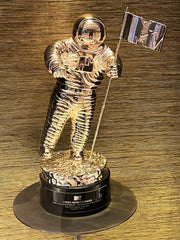This is the third in our series of profiles of iconic record labels, exploring the label's history and some interesting stories about the artists they signed and music they released. Look for more label profiles coming up soon and check them all out here.
Capitol Records, one of the most iconic record labels in the history of the music industry, has a rich history that spans nearly a century. From its inception in the 1940s to its prominent position in today's global music market, Capitol Records has played a pivotal role in shaping popular music and culture worldwide.
Capitol Records was founded in 1942 by Johnny Mercer, Buddy DeSylva, and Glenn Wallichs. Mercer, a successful songwriter, DeSylva, a Hollywood producer, and Wallichs, a music store owner, joined forces to create a new kind of record company on the West Coast. Their vision was to establish a record label that would rival the established East Coast labels like RCA Victor and Columbia Records.
One of Capitol's earliest successes was signing the legendary Nat King Cole in 1943. Cole's smooth vocals and jazz-infused style helped propel Capitol Records into the spotlight. The label also signed other prominent artists such as Peggy Lee, Stan Kenton, and the Capitol Symphony Orchestra, solidifying its reputation for quality and diversity.
In 1947, Capitol Records introduced the first commercially successful 12-inch LP (long-playing) record, which revolutionized the industry by offering longer playing times and higher fidelity audio compared to the 78 RPM records of the time. This innovation positioned Capitol as a leader in the evolving technology of recorded music.
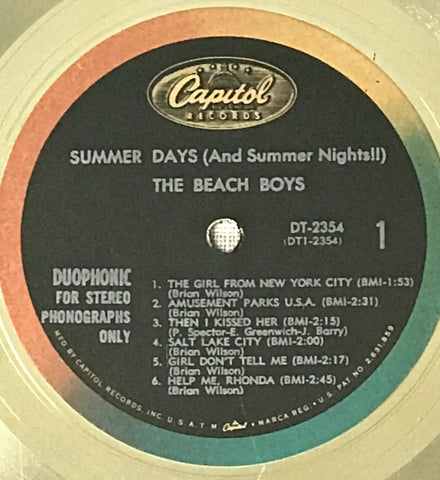
The Beach Boys were a key late-50s signing for Capitol
Throughout the 1950s, Capitol Records continued to expand its roster of artists and genres, embracing rock and roll with signings like Gene Vincent and the Beach Boys. The label's distinctive circular building in Hollywood, known as the Capitol Tower, became a symbol of its growing influence and importance in the music world.
In 1955, UK-based EMI bought 96% of Capitol Records stock for $8.5 million and built a recording studio at Hollywood and Vine in Los Angeles. EMI of course owned the iconic Abbey Road Studios in London, where a fledgling group called The Beatles started recording their material in 1962.
This led Capitol Records to make their historic 1963 decision to release records by the essentially unknown Fab 4 in the United States. This move would forever change the trajectory of popular music and cement Capitol's place in music history. The Beatles' unparalleled success under Capitol Records included numerous chart-topping hits and albums that dominated the Billboard charts for essentially the entire decade.
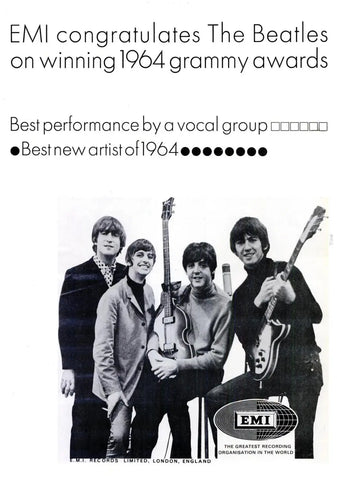
During the 1960s, Capitol Records continued to thrive in other ways as well, with more releases from The Beach Boys, and expansion of its roster to include artists such as Frank Sinatra, The Kingston Trio, Andrews Sisters, Judy Garland, Jackie Gleason, Andy Griffith, Dean Martin, and Nancy Wilson. The label also diversified its offerings with subsidiary labels like Capitol Nashville for country music and Blue Note Records for jazz.
The 60s of course also delivered success after success for the lads from Liverpool, and in 1968 they generated what many consider to be their greatest creative achievement, which also became one of the most iconic and successful Capitol Records releases of all time:
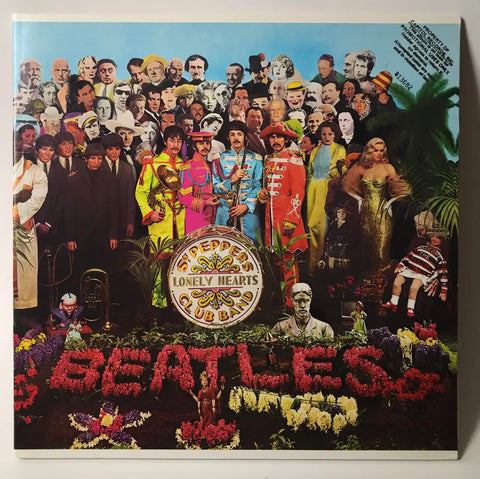
In the 70s, more powerhouse signings occurred as the label brought in Pink Floyd, Wings, Steve Miller Band, Bob Seger, and Linda Ronstadt.
Capitol Records' global expansion during this period further solidified its status as a major player in the international music scene. The label established branches in Canada, the UK, and other key markets, facilitating the distribution of its artists' music worldwide.
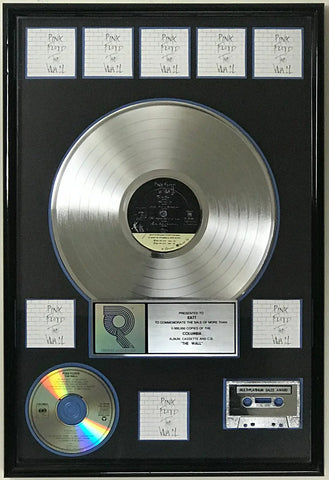
Pink Floyd's The Wall has sold 23 million copies for Capitol in the U.S. alone
The 1980s brought challenges for Capitol Records as the music industry underwent significant changes with the rise of MTV and digital technology. Despite these challenges, Capitol continued to sign influential artists such as Beastie Boys, Duran Duran, Bonnie Raitt, and MC Hammer and, later, Radiohead and Coldplay, adapting to new musical trends and consumer preferences.
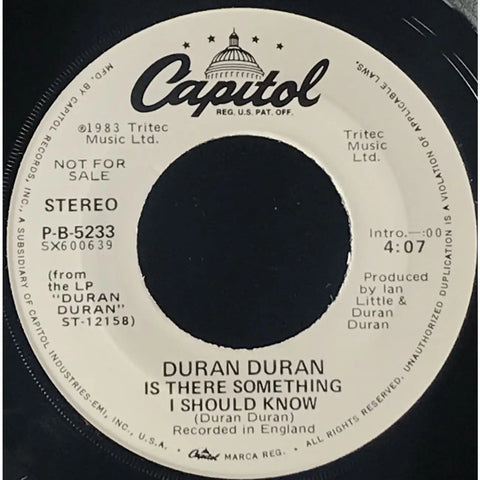
The 2000s saw Capitol Records navigating the digital age and the shift from physical to digital music formats. The label embraced online distribution platforms and digital streaming services, ensuring its artists' music remained accessible to a global audience.
In 2012, Capitol Records became part of Universal Music Group following the latter's acquisition of EMI's recorded music operations. This acquisition brought Capitol under the same umbrella as other major labels such as Interscope and Def Jam, enhancing its resources and global reach.
Today, Capitol Records continues to uphold its legacy as a pioneer in the music industry, representing a diverse roster of artists across various genres. Artists in today’s roster at the label include Ice Spice, Sam Smith, Katy Perry, Troye Sivan, Kodak Black, Lewis Capaldi, Kings of Leon, Paul McCartney, Beastie Boys, and the Bee Gees.
The iconic Capitol Tower not only endures as a friendly beacon in Hollywood, it also stands as a symbol of the company’s enduring influence in the music marketplace, from Nat King Cole to the Beatles and on forward.
Interested in genuine RIAA Gold and Platinum and other record awards? Check out our selection here. We typically have several hundred in stock.
Want more content like this? If you're not a subscriber already, sign up for our free MusicGoldmine newsletter which comes out every two weeks. Go here to sign up.
Be the envy of all your friends! Get MusicGoldmine.com Music History in your Facebook feed each day. Just follow us on Facebook here.
All photos by MusicGoldmine.com or public domain

